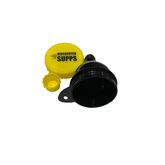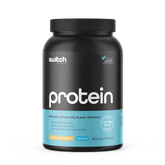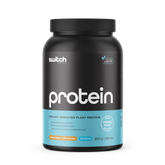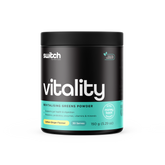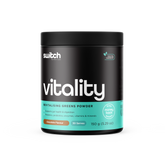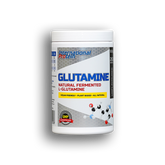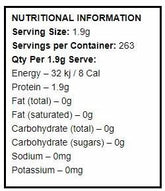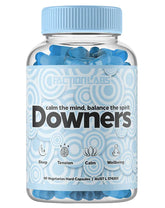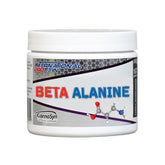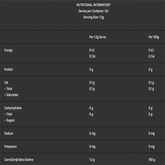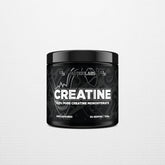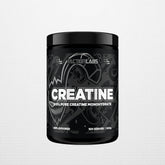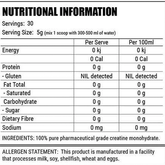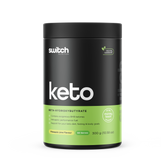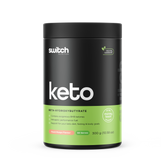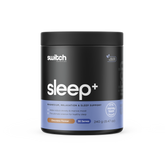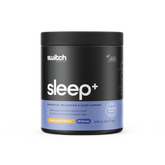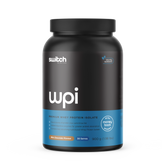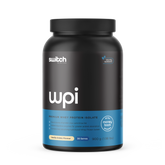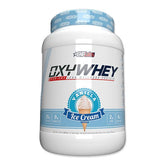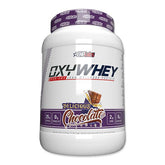-
Protein Switch
Elevate your day with the #1 Rated Plant Protein in World. Indulge in the creamy taste of our dairy-free, non-gritty protein, celebrated for its exceptional flavour and formula. Perfect for busy days, our Gut-Friendly Wholefood Protein Shake is enriched with DigeZyme™ for digestion...- $59.96
$74.95- $59.96
- Unit price
- per
-
Vitality Switch
Transform your health and vitality effortlessly with just one scoop a day. Vitality Switch is your ultimate key to unlocking unparalleled energy and wellbeing. Designed with 42 superfoods, providing a comprehensive nutritional foundation that ensures your body receives the essential support it needs. Our...- From $47.96
$59.95- From $47.96
- Unit price
- per
-
Glutamine 500g
Optimize your fitness journey with 100% Pure Natural Fermented L-Glutamine. This powerful amino acid supports muscle recovery, protein synthesis, and immune system function for improved performance. Trust in the highest purity and quality without additives or fillers. Unlock your full potential with Glutamine.- $40.79
$50.99- $40.79
- Unit price
- per
-
Uppers 60 Capsules
Faction Labs Uppers: Potent stimulant to boost productivity and promote restorative sleep. AUSTL listed for clean, safe ingredients prioritizing well-being. Benefits include increased energy, mental clarity, metabolism, thyroid function, and overall health. Enhance productivity and restful sleep with Faction Labs Uppers.- $31.95
$39.95- $31.95
- Unit price
- per
-
Downers 90 Capsules
Improve sleep and relaxation with Faction Labs DOWNERS. Its ingredients are carefully chosen to calm the mind and promote a healthier sleep cycle.- $39.95
$49.95- $39.95
- Unit price
- per
-
Cougar Juice
Experience the wonder of Faction Labs Cougar Juice, a blend designed to make you feel youthful. Embrace the term "cougar" and unlock your radiance with Collagen, a key ingredient. Choose from four delicious flavors or mix with your preferred beverage for a personalized experience....- $63.96
$79.95- $63.96
- Unit price
- per
-
Beta Alanine
Maximize your workouts and achieve greater gains with International Protein Beta Alanine. This premium supplement boosts strength, enhances endurance, and reduces muscle fatigue by increasing Carnosine levels and minimizing lactic acid build-up. Just add one scoop to water or your pre-workout drink 30 minutes...- $41.96
$52.12- $41.96
- Unit price
- per
-
Creatine 30 Serve
Boost athletic performance with Faction Labs Creatine, a pure and high-quality supplement that improves muscle strength and exercise performance while supporting muscle recovery. Made with pharmaceutical-grade creatine monohydrate and rigorously tested for quality and purity, this unflavored powder is versatile and suitable for both...- $15.96
$19.95- $15.96
- Unit price
- per
-
Cougar Juice Sample
Free shaker not included with Sample Sachets. Please Note these are a sample Sachet. Discover the wonders of Faction Labs Cougar Juice, a remarkable blend designed to make you feel and look youthful. Cougar is now a term that describes vibrant, fun-loving, and charming...- $5.90
$6.95- $5.90
- Unit price
- per
-
Creatine 100 Serve
Boost your athletic performance with Faction Labs Creatine. This pure and high-quality supplement increases muscle strength, improves exercise performance, and speeds up muscle recovery. Plus, it's versatile and undergoes rigorous testing for quality and purity. Order now and unlock your fitness potential. Consult a...- $31.95
$39.95- $31.95
- Unit price
- per
-
Keto Switch (BHB Ketones)
Keto Switch is a ground breaking addition to the fitness and health market in Australia, designed for those seeking to enhance their metabolic efficiency, recovery, and overall health through ketosis. Whether you're adhering to a ketogenic diet, practicing intermittent fasting, or simply looking for...- $71.96
$89.95- $71.96
- Unit price
- per
-
Sleep +
Unlock Deeper, Restorative Sleep with Sleep+ It's not just about how many hours of sleep you get, it's about the quality and depth of that sleep. Sleep+ is crafted to enhance both, ensuring you wake up feeling truly rested, refreshed, and ready to take on the day. ...- From $12.00
$15.00- From $12.00
- Unit price
- per
-
WPI Switch
Elevate your nutrition with Switch WPI, the ultimate choice in whey protein isolate. Our premium blend combines Cross Flow Micro Filtered and Hydrolysed Whey Protein Isolate, ensuring rapid absorption for optimal performance. Ideal for athletes and active families, Switch WPI delivers the high-quality protein...- $79.96
$99.95- $79.96
- Unit price
- per
Health Supplements
Importance of Health
Health is a dynamic process because it is always changing. We all have times of good health, times of sickness, and maybe even times of serious illness. As our lifestyles change, so does our level of health.
Those of us who participate in regular physical activity do so partly to improve the current and future level of our health. We strive toward an optimal state of well-being. As our lifestyle improves, our health also improves and we experience less disease and sickness. When most people are asked what it means to be healthy, they normally respond with the four components of fitness mentioned earlier (cardiorespiratory ability, muscular ability, flexibility, and body composition). Although these components are a critical part of being healthy, they are not the only contributing factors. Physical health is only one aspect of our overall health.
Vitamins and Minerals
Vitamins and minerals are essential nutrients because they perform hundreds of roles in the body. There is a fine line between getting enough of these nutrients (which is healthy) and getting too much (which can end up harming you). Eating a healthy diet remains the best way to get sufficient amounts of the vitamins and minerals you need. But if you find you are lacking, a Vitamin & Mineral supplement can help get you over the line.
Notable Health Products
-
Vitality Switch by Switch Nutrition
- Gut Performance by Everybody Everyday
- All Natural Super Greens by Macro Mike
FAQs
What are the dos and don'ts of taking health supplements?
Do:
- Most health supplements come with comprehensive instructions, so read the label carefully to understand what you’re taking.
- Vitamin supplements are a health investment, so choose products from reputable brands to ensure you get the quality your body deserves.
- Check with your doctor or health care professional before taking any supplement, especially if you have a medical condition or are currently taking a prescription medication.
- Start with a low dose and gradually increase as needed.
- Take supplements with food or after a meal to reduce the risk of gastrointestinal side effects.
Don’t:
- If you miss a dose of your vitamin supplements, don’t double up the next day. Always stick to the advised dosage.
- Stop taking a supplement suddenly without consulting a professional for health care advice.
- If pregnant or breastfeeding, refrain from incorporating new vitamin supplements into your regime without consulting your doctor.
- Share supplements with others — they may not be suitable for everyone.
- Leave your health and vitamin supplements around children as they may be harmful if accidentally taken in large quantities.
When should you take health supplements?
If your diet lacks essential vitamins, minerals and nutrients, you may benefit from a health supplement. The decision of when or whether or not to take a health supplement should be made in consultation with a healthcare professional, so they can assess what nutrients or vitamins you’re deficient in.
What should not be mixed with health supplements?
Certain health supplements interact negatively with nicotine. For instance, carotene combined with smoking could increase your risk of lung cancer. As tempting as it might be, it's best not to drink tea or coffee with your supplement, as caffeine and tannins can prevent the absorption of the nutrients.
Additionally, some supplements can interact with prescription medication, making them less effective or causing unwanted side effects. If you take any medication regularly, check with your doctor before taking a vitamin supplement.
Should you take health supplements with meals?
In general, taking a health supplement with food may increase its absorption and effectiveness. With that said, some health supplements are made to be taken with meals, while others can be taken on an empty stomach. It is essential to read the instructions on the supplement bottle or package and to speak with a healthcare professional if you have any questions.
Do you need to see a doctor before taking health supplements?
Before adding new vitamins or health supplements to your daily regimen, it's important to consult a doctor, especially if you have any existing medical condition or are already taking prescription medications. Health supplements aim to counteract deficiencies, so identifying these deficiencies can help you choose the right health supplement for your needs.
Collections
Featured Products
50g Travel Gym Funnel
- $4.95
$5.95- $4.95
- Unit price
- / per
600ml Black Discounted Supplement Shaker
- $7.95
$9.95- $7.95
- Unit price
- / per
Heavy Duty Lifting Straps
- $17.95
$29.95- $17.95
- Unit price
- / per
- Choosing a selection results in a full page refresh.
